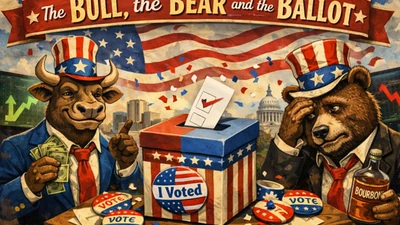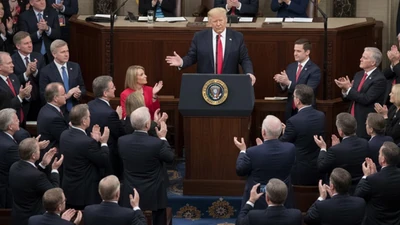Market Intelligence for the Principled Investor in the Trump Era
Smart Investing in a Changing Economic Landscape
With President Trump back in office, the economic landscape is shifting once again—bringing new opportunities and challenges for investors who believe in free markets, national strength, and American prosperity. His administration’s policies are focused on deregulation, tax incentives, energy independence, and protectionist trade measures, all of which are reshaping investment strategies. The question isn’t just where the markets are heading—it’s how smart investors can get ahead of the curve.
Regulation Watch: Policies That Impact Conservative Investors
Trump’s renewed focus on deregulation has already begun to ease burdens on industries such as energy, manufacturing, and finance. By cutting red tape, businesses can grow faster and return more value to investors. Sectors once bogged down by environmental restrictions and labor regulations are seeing renewed investment, particularly in fossil fuels, domestic production, and infrastructure.
At the same time, tariffs and trade negotiations are creating a more complex environment for companies that rely on global supply chains. While protectionist measures aim to strengthen American manufacturing, they also mean that businesses sourcing materials from abroad will need to adapt. Investors who can identify firms with strong domestic supply chains and adaptable business models will be in the best position to benefit.
The Fed & Free Markets Interest Rates, Inflation, and Economic Trends
Trump’s economic policies, including potential tax cuts and aggressive pro-growth measures, are likely to have a direct impact on inflation and interest rates. As the administration pushes for economic expansion, the Federal Reserve will respond accordingly, influencing borrowing costs and the overall investment climate.
For conservative investors, this means staying mindful of sectors that thrive in a rising-rate environment—such as financials and dividend-paying stocks—while also keeping an eye on inflation-resistant assets like real estate and commodities. The key is to anticipate where economic policy is heading and position investments accordingly, rather than reacting to short-term market fluctuations.
Global vs. Local: Why American Investments Matter in an Unpredictable World
America-first policies are once again taking center stage, and for investors, this creates a compelling case for focusing on domestic opportunities. While global markets remain important, the administration’s stance on reshoring jobs and strengthening domestic industries makes U.S.-based investments more attractive than ever.
Companies that manufacture and innovate within U.S. borders stand to gain from tax incentives and government contracts. Defense, infrastructure, and technology firms with a strong American footprint are positioned for long-term growth. Investors who prioritize businesses with a clear commitment to American production and workforce development will not only see financial rewards but will also contribute to strengthening the nation’s economic independence.
The Edge Belongs to the Prepared
Market intelligence isn’t just about tracking trends—it’s about understanding how policy shifts impact real-world investment decisions. Under Trump’s leadership, we’re seeing a return to policies that prioritize economic growth, national security, and American-made industries. Smart investors will recognize this moment as an opportunity to align their portfolios with these long-term trends. By staying ahead of regulatory changes, monitoring the Fed’s moves, and prioritizing U.S.-based investments, principled investors can turn this era of change into a period of unparalleled opportunity. The future belongs to those who are informed, prepared, and willing to invest in the America they believe in.










